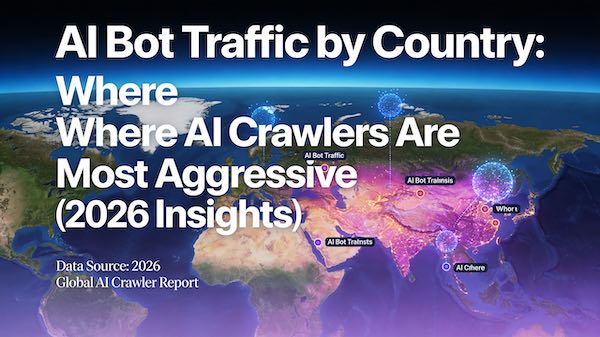
But, are you making the most out of PPC for your small business? If your answer is a "maybe" or a "no", then it's time to take a closer look into the potential of PPC for small businesses!
What is PPC (Pay-Per-Click)?
Pay-per-click advertising, widely known as PPC, is an internet marketing model where advertisers pay a fee each time one of their ads is clicked. Essentially, it's buying visits to your site, rather than attempting to "earn" those visits organically through SEO.
Now, you must be wondering, why shell out money to buy visits when you can optimize your website and get them for free?
Let's put it like this: PPC is a turbo booster for your website traffic. It's like taking an express train instead of a local one — the former gets you to your destination much faster.
But what's even better is that unlike other traditional advertising models, you only pay for clicks, not merely for ad placement. This aspect makes PPC an economical choice for small businesses with tight marketing budgets.

If you’re running SEO, content marketing
What are the Benefits of PPC for Small Businesses?
While SEO helps build a solid digital foundation and long-lasting structure for your website, PPC is more about speed and instant gratification.
As a small business, a robust combination of both SEO and PPC can help you gain short-term immediate goals as well as long-term sustained success.
Here are some benefits of PPC for small businesses that you might want to consider:
🚀 Instant Traffic: PPC ads can deliver targeted, convertible traffic to your site instantly once the campaign starts.
🚀 Predictable: As compared to organic traffic, PPC offers greater control over your marketing efforts. You can select where your ads will be posted and when.
🚀 Increased Visibility: PPC ads can increase your business visibility significantly, ensuring that your products or services are noticed by potential customers.
🚀 Cost-Effective: You only pay when a user clicks your ad and visits your website – not when the ad appears on a page. This means your advertising budget is spent wisely and returns can be high if your ads are effective.
🚀 Optimal ROI: With its pay-per-click model, you can easily track the cost-per-conversion and understand how much value your PPC ads are bringing in.
🚀 Competitive Advantage: A well-crafted PPC campaign can help you outrank your competitors in the search engine results – invaluable for a small business trying to make its presence felt in a crowded market.
🚀 Works Well with Other Strategies: PPC plays well with your other marketing channels and can even assist in their performance. If you’re running SEO, content marketing, outbound lead generation, or social media campaigns, incorporating PPC can help boost their effectiveness.
💡 Read our blog post: SEO vs PPC Statistics: Statistical Insights and Comparison
8 PPC Tips for Small Businesses
Managing a PPC campaign requires consistent monitoring, testing, adjusting, and learning. No PPC campaign will be perfect from the get-go.
It's all about making continuous small adjustments to enhance the campaign's effectiveness.
Here are some tips to manage your PPC campaign effectively:
1. Start with a Small Budget

In the thrilling ride of PPC advertising, it's easy to get carried away. Therefore, it's necessary to set a budget for how much you’re willing to spend on your PPC campaigns.
You're here to optimize your resources, aiming for maximum returns on investment (ROI), not to splash the cash aimlessly. Since there's no minimum amount that you must spend on PPC ads, you can start with a modest amount.
Monitor the outcomes closely, make adjustments as necessary, and increase your spend once you begin to see positive results.
2. Pick Smart Keywords
Every search a person makes on a search engine starts with a keyword. As a result, selecting the right keywords is akin to setting a strong foundation for your PPC campaign.
But picking keywords shouldn't be a random process. It should begin with you understanding your product/service, analyzing your audience, and their search habits. Look for keywords that resonate with your brand and your offerings, keeping in mind search intent.
Use tools like Google's Keyword Planner or SEOmator’s Free Keyword Research Tool to find popular and relevant keywords. SEOmator’s keyword research tool provides CPC (cost-per-click) value of keywords. In that way, you can plan your PPC budget in an effective way.

You can consider long-tail keywords, since they are more specific and, usually, less competitive than generic keywords. They help target niche demographics rather than mass audiences.
More importantly, instead of focusing only on keyword volume, make sure the keywords you select have a direct relation to your business.
Also, local geographic keywords can make a significant impact, especially for small businesses that cater to customers in a defined area.
💡 Read our blog post: How to Find Trending Keywords (7 Methods)
3. Develop Ad Copy That Converts
Once you've nailed down your keywords, the next crucial step is to create compelling ad copy. While keywords make sure your ad appears at the right place and time, your ad copy is what will convince the searcher to click on your ad.
Potential customers are most likely to engage with ads that are relatable, answering their queries or needs. Ensure your ad copy is concise, contains compelling CTAs, and speaks your customer's language.

The headline is the first thing a viewer sees; make sure it's catchy and engaging. Include a clear and compelling call-to-action, guiding the viewer on what to do next.
Research your target audience and use language and messaging that they can relate to. Your ad copy speaks volumes about your brand. Therefore, it must be crafted carefully using strong, clear, and compelling language.
Also, if there are any special offers or unique benefits your business has to offer, include those in your ad copy.
4. Optimize Landing Pages
Once a potential customer clicks on your ad, they're directed to your landing page. It needs to deliver what the ad promised and guide the visitor towards a conversion.
Your landing page should be consistent with your ad in terms of content and design, creating a seamless journey for the viewer. Irrespective of how great your ad copy is, you may still lose potential customers if your landing page doesn't deliver.

Your headlines should be clear, engaging and reflect the essence of your product/service. Guide your visitor to the next step with a clear, uncomplicated call to action.
Ensure your landing page is mobile-friendly. A majority of the internet traffic comes from mobile users; you don't want to lose out on that.
5. Schedule and Pause Ads
PPC allows you to run your campaigns at optimal times, and pause or lower bids for off-peak hours. This way, you can maximize your ad's exposure when your audience is most likely to be active online, and save your bid budget when they're less likely to interact.
For example, if you're a local eatery offering lunch specials, you'd want to run your ads around mid-morning when people start considering their lunch options. You could then reduce or pause them during evening hours to conserve your budget.
6. Check Your Quality Score
Google's Quality Score is like a report card for your keywords and ads. It impacts your ad rank and cost per click. Checking your quality score and understanding what affects it can guide you to make improvements and oversee significant enhancements in your campaign's performance.
Boosting your quality score involves optimizing the components we've just discussed: Relevant keywords, compelling ad copy, and optimized landing pages. It also includes improving your click-through rate (CTR), the relevance of each keyword to its ad group, and your historical Google Ads account performance.

7. Retarget Website Visitors
If a visitor leaves your website without making a purchase, does that mean it’s game over? Not quite! With PPC, you can use retargeting to reach out to users who’ve previously interacted with your website or mobile app.
This strategy helps remind your audience about your brands, nudging them closer to making a purchase. Dynamic retargeting can push this one step further, showing the exact product or service users were looking at, to entice them back.
8. Track Your Performance
Keep a close eye on your campaign. Look at your click-through rates (CTR), conversion rates, average cost-per-click (CPC), and other relevant metrics. Don't be afraid to tweak your campaign if you feel it's not delivering as expected.
You can use platforms like Google Ads and Google Analytics to regularly track your campaign's performance.
Regular monitoring can help you detect changes in performance, identify trends, and draw actionable insights. This continuous pursuit of improvement finally leads to the optimization of your conversion rate—a prime goal for any PPC advertiser!
Wrapping Up

PPC advertising can help your small business appear directly in front of the users who are actively searching for your products or services.
Firsty, you need to define who you're targeting. After understanding your audience, figure out what keywords they might use while searching for your products or services.
Your ad copy is the first thing your audience sees, so make sure it's compelling. Moreover, once someone clicks on your ad, they should be redirected to a landing page that reflects what the ad promises.
Don’t forget to regularly track your campaign's performance and optimize your campaign.
Combined with SEO strategies, PPC advertising can be your direct ticket towards acquiring better visibility and recognition amongst your target consumers!
💡 Related Articles:
- SEO vs PPC Statistics: Statistical Insights and Comparison





